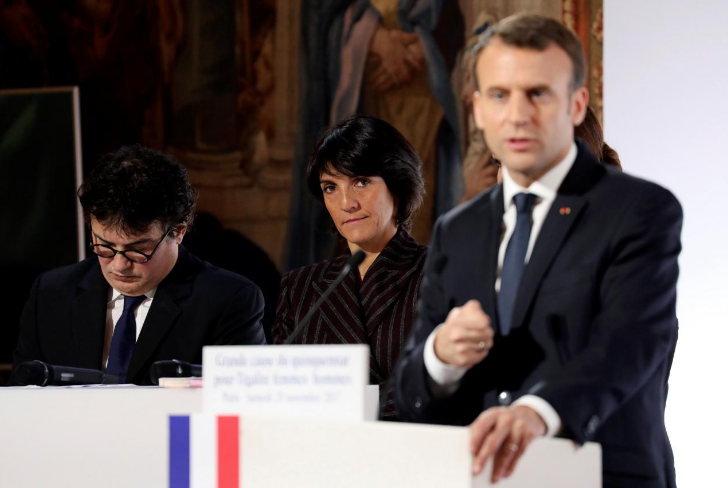French President Macron Promises Gender Equality Reforms As France Reexamines Its Own Treatment Of Women
/French President Emmanuel Macron (R) stands in front of Florence Foresti, French humorist and patron of association 'Women Safe', and French writer, activist and physicianPatrick Pelloux as he delivers a speech during the International Day for the Elimination of Violence Against Women, at the Elysee Palace in Paris, France, November 25, 2017. REUTERS/Ludovic Marin/Pool
French president Emmanuel Macron observed the International Day for Elimination of Violence Against Women with a minute of silence for the 123 French women killed by their partner or ex-partner in 2016.
The #MeToo movement and the Harvey Weinstein scandal in America have provoked a rethinking of attitudes about sexual harassment in France, known worldwide as the "land of seduction and romance", writes Reuters.
Unlike Donald Trump, who is trying to roll back women's rights advancements in America with increased legislation around women's reproductive health and a deep plunge in the appointments of women in his cabinet and inner circle and the federal judiciary, Macron campaigned on a platform of rethinking sexual politics and gender equality in France as part of his five-year-mandate.
Proposals that could be included in a 2018 draft law include criminalizing street harassment and extending the statute of limitation for the rape of minors to 30 years from 20 years. France has no minimum age of sexual consent and Macron is personally in favor of setting the age of sexual consent at 15.
Planned changes to the police system would allowing victims of rape and sexual assault to file their initial complaints online, before going to a police station to bring criminal charges. Other measure includes “on demand” bus stops, where women can stop a bus anywhere at night so they can get home safely.
French feminist group Osez le Féminisme agreed that the proposed measures were going in the right direction but achieving them requires adequate funding.
“Without funding, any communication, training, awareness or help plan for the victims will be useless,” the statement said.
